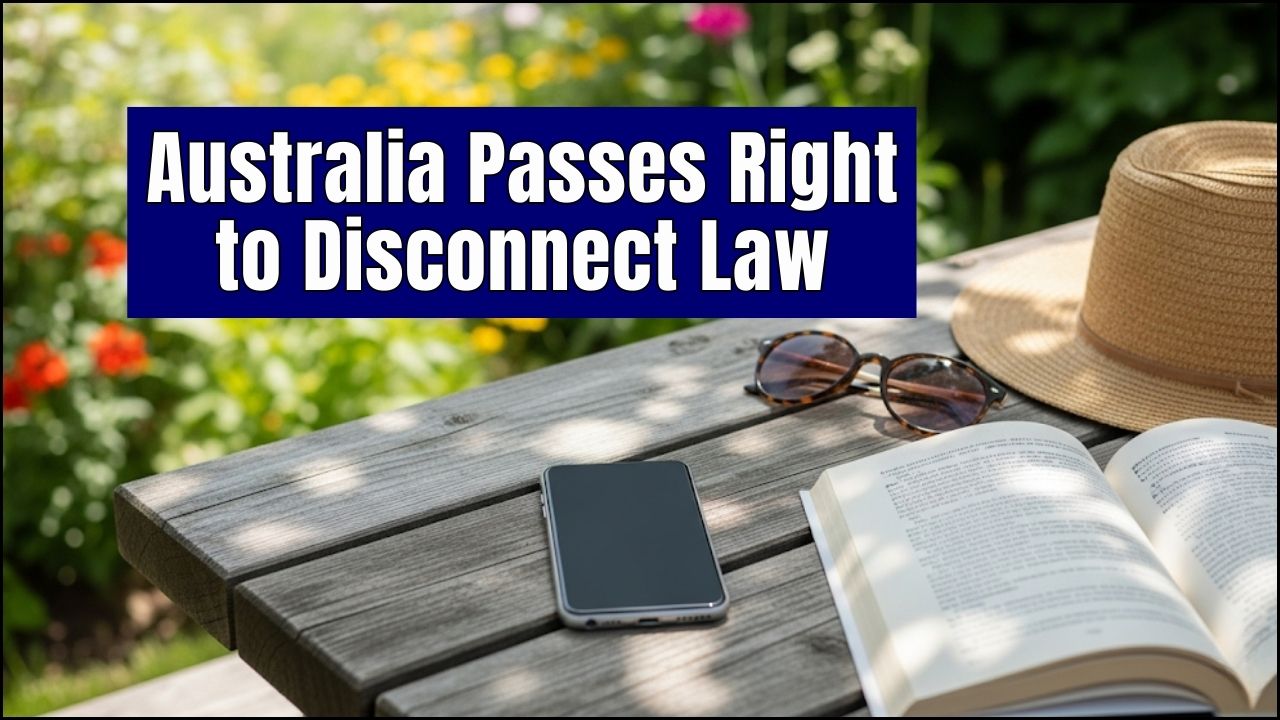Millions of Australians at risk of super going to the wrong person – how to fix it now is not just a clickbait headline—it’s a wake-up call. Every Aussie worker has super. But what most folks don’t realize? If your super isn’t properly sorted with a binding death benefit nomination, it could end up in the wrong hands after you die.

That means your hard-earned retirement savings could be passed to someone you didn’t choose—maybe even an ex. Sound like a nightmare? It is. But don’t worry, we’ll walk you through how to fix it right now in a few easy steps.
Millions of Australians at Risk of Super Going to the Wrong Person
| Topic | Details |
|---|---|
| People at Risk | ~6.5 million Australians could lose control over their super after death |
| Binding vs Non‑Binding | Binding = must be followed. Non-binding = may be overridden. |
| Expiration Period | Binding nominations typically expire every 3 years |
| Processing Delays | Some death benefits took 500+ days to resolve |
| Common Mistake | Using an online form without proper witnessing = non-binding |
| Big Fund Penalty | AustralianSuper fined $27 million for fee errors on duplicate accounts |
| Official Resource | ASIC.gov.au – Rules, rights, and complaints info |
When it comes to superannuation, most Aussies focus on fees, growth, and fund performance. But there’s a quiet threat lurking: your money could go to someone you never intended if your death benefit nomination isn’t binding and up-to-date. Fixing it is simple—download the form, sign it right, witness it properly, and renew it every few years.
Don’t let your legacy get tangled in red tape.
What’s Actually Going Wrong?
According to recent reports, including ABC News and ASIC data, millions of Aussies are unaware that their superannuation death nominations are invalid, expired, or not binding.
- 36% of Australians have made no nomination at all
- Only 25% are sure they’ve made a valid binding one
- Many rely on quick online forms that are not legally binding
- Most are unaware that binding nominations expire every 3 years
What Happens If You Don’t Have a Nomination?
- Step 1: The Trustee Decides. Without a valid binding nomination, the super fund’s trustee has the final say. They will use their discretion to decide who receives your super, which may not align with your wishes.
- Step 2: Payout to a “Superannuation Dependant”. The trustee will typically pay the benefit to your “superannuation dependants,” which can include a spouse, de facto partner, children (of any age), or someone financially dependent on you.
- Step 3: The Estate Option. If there are no dependants, or the trustee decides it’s appropriate, they may pay the super benefit to your estate, which is then distributed according to your will. This process can be slow and may face legal challenges.
Real-Life Cases That Will Make You Think Twice
- Case 1: The Forgotten Father
A father left everything to his disabled son. But he used a non-binding nomination. The fund allowed a sibling to contest the claim. Two years later, the son still hasn’t received a cent. - Case 2: The Grieving Widow
A widow waited over 500 days to access her late husband’s super. ASIC flagged the fund for delay and failure to resolve disputes quickly. That’s over a year and a half of uncertainty in the middle of grief.
So, What’s a Binding Death Benefit Nomination?
A binding death benefit nomination is a legal document that tells your super fund who gets your money when you die. Unlike the standard online nomination (non-binding), this one:
Must be signed in ink
Must be witnessed by two people (not beneficiaries)
Must be sent in (usually via paper form)
Must be renewed every 3 years
If you skip any of that, your nomination might not count.
Checklist: Fix It Now in 6 Easy Steps
Step 1: Check Your Fund
- Log into your super account.
- Look for the section: Death Benefit Nomination.
- Check whether it’s binding, non-binding, or none.
Step 2: Download the Right Form
Go to your super fund’s website and search:
“Binding Death Nomination Form”
Most are PDFs. Print it out.
Step 3: Fill & Witness It
- Write your beneficiary’s full name and relationship.
- Sign in front of two adult witnesses (who are NOT beneficiaries).
Step 4: Send it to Your Fund
- Mail it to the address listed on the form.
- Snap a pic or scan it for your records.
Step 5: Set a Reminder
Put a calendar reminder for 3 years from now to renew.
Step 6: Review Annually
Any major life change = check your nomination. That means divorce, marriage, kids, or even a change of heart.
Comparison Table
| Feature | Binding Death Benefit Nomination | Will & Non-Binding Nomination |
| Legal Status | Legally binding on the super fund. | Not legally binding. The super fund’s trustee has discretion. |
| Who Receives Super | Nominees you’ve specified (e.g., spouse, children, estate). | Trustee decides who is a “dependant” or pays to your estate. |
| Timeframe for Payout | Generally faster and more straightforward. | Can be a lengthy process, often involving legal challenges and court action. |
| Expiration | Most are lapsing (expire every 3 years) or non-lapsing (permanent until changed). Check with your fund. | Does not expire, but the super fund may not follow the instructions. |
| Peace of Mind | High. You have control over who gets your money. | Low. Your wishes may not be followed, and family members could face disputes. |
Top 3 Super Nomination Mistakes to Avoid
1. Not Keeping Your Nomination Current: Life changes. If you get married, divorced, have children, or a beneficiary passes away, your nomination may no longer reflect your wishes. Update it immediately to avoid your super going to an ex-partner or someone who is no longer a dependant.
2. Believing Your Will is Enough: A common misconception is that your will covers your super. It doesn’t. Your super fund is a separate legal entity, and the money is held in a trust for you, not as a personal asset. You need a specific superannuation nomination.
3. Forgetting to Renew a Lapsing Nomination: Many binding nominations are only valid for three years. If yours lapses, it becomes a non-binding nomination, leaving the decision back in the hands of the trustee. Set a calendar reminder to check and renew yours every few years.
Busting the Top 5 Myths
Myth 1: “I set it up online, I’m good.”
Maybe not. Most online setups are non-binding.
Myth 2: “My will covers it.”
Nope. Your super is not part of your estate unless the trustee decides it should be.
Myth 3: “I nominated someone years ago. I’m done.”
Expired = invalid. Most expire after 3 years.
Myth 4: “They’ll just know what I want.”
Legally, they don’t have to follow your wishes without a binding form.
Myth 5: “My kids will work it out.”
Sibling fights over money are the stuff of courtroom legends.
Real-World Case Study or Mini Example
Sarah, a single mother, was shocked to learn that her late husband’s superannuation—a sum of over $500,000—was at risk. He had never made a binding nomination. The fund’s trustee had to review all claims and consider his “dependants.” This meant Sarah, her two young children, and even his parents had to submit claims, creating a long, stressful, and contentious process. If her husband had simply filled out the correct form, the money would have been released to Sarah and the children swiftly and without dispute.
FAQs
Q: Can I nominate my de facto partner?
Yes, if they are financially dependent or interdependent.
Q: Can I nominate a friend or charity?
Only certain people can be nominated directly. Others may require going through your estate. Always check with your fund or legal adviser.
Q: What happens if I don’t nominate anyone?
Your fund’s trustees decide. It may go to your estate—or someone else entirely.
Q: Can my nomination be contested?
Even binding nominations can be challenged under certain conditions—but they’re much harder to overturn.













